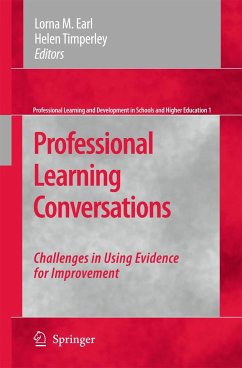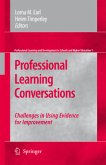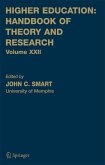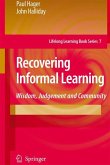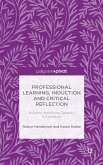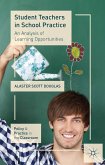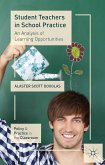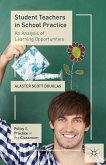This volume provides arguments, theory and examples based on research about what it looks like when educators, policy makers, and students try to rethink and change their practices by engaging in evidence-based conversations to challenge and inform their work.
This, the first book in the series, 'Professional Learning and Development in Schools and Higher Education', is edited by two experienced, committed and skilled educationists from different parts of the world but with converging values and viewpoints. The result is a rich mélange of authors from the USA, Australia, South Africa, Canada and New Zealand all of whom focus on the use of evidence informed decision-making in schools and classrooms. This focus makes for an unusual collection which acts as an antidote to change agendas which are entirely results driven. The book provides evidence from a variety of countries of how s- tem leaders, teachers in schools and higher education must now manage as part of their endeavours to provide the best possible learning and achievement opportu- ties for all students. What makes this book unique is its engagement with the rea- ties of the challenge of evidence informed conversations which all too quickly become 'activity traps' as teachers are steered away from evidence towards ado- ing short term pragmatic or ideological solutions which suit the policy agendas of reformists from outside schools and, more often than not, fail to result in real changes in teaching and learning.
This, the first book in the series, 'Professional Learning and Development in Schools and Higher Education', is edited by two experienced, committed and skilled educationists from different parts of the world but with converging values and viewpoints. The result is a rich mélange of authors from the USA, Australia, South Africa, Canada and New Zealand all of whom focus on the use of evidence informed decision-making in schools and classrooms. This focus makes for an unusual collection which acts as an antidote to change agendas which are entirely results driven. The book provides evidence from a variety of countries of how s- tem leaders, teachers in schools and higher education must now manage as part of their endeavours to provide the best possible learning and achievement opportu- ties for all students. What makes this book unique is its engagement with the rea- ties of the challenge of evidence informed conversations which all too quickly become 'activity traps' as teachers are steered away from evidence towards ado- ing short term pragmatic or ideological solutions which suit the policy agendas of reformists from outside schools and, more often than not, fail to result in real changes in teaching and learning.

